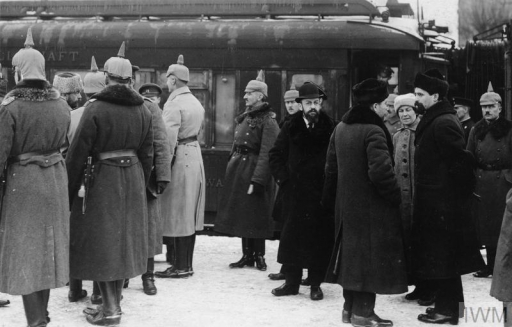Russia’s new revolutionary socialist leaders agreed an armistice with the Central Powers on 15 December 1917, suspending hostilities on the Eastern Front.
The deal paved the way for talks to start on a peace treaty, ending Russian involvement in the First World War.
Lenin’s Bolsheviks had seized power in November, promising ‘peace, bread, land’ to millions of war weary soldiers and workers.
The delegations met in Brest-Litovsk, a fortress town then in Poland, now in Belarus, with Leon Trotsky making his international debut as People’s Commissar for Foreign Affairs.
Negotiations broke down in February 1918, as Trotsky resisted German territorial demands.
Faced with German troops sweeping once more into Russia, the Soviet government, led by Lenin, agreed to accept the harsh terms to save the revolution.
The Treaty of Brest-Litovsk, signed in March 1918, forced the Bolsheviks to cede control of large areas of the former Tsarist empire, including the Baltic states, Poland and Ukraine.
It also formally ended the wartime alliance with Britain and France, who would soon intervene to support anti-Bolshevik forces in the Russian Civil War.
Also in December 1917:
America declares war on Austria-Hungary.
Jerualem falls to British-led forces under General Sir Edmund Allenby.
Sources: Wikipedia/various
Images courtesy of Imperial War Museums, © IWM Q 86710)
Posted by: CN Editorial Team
